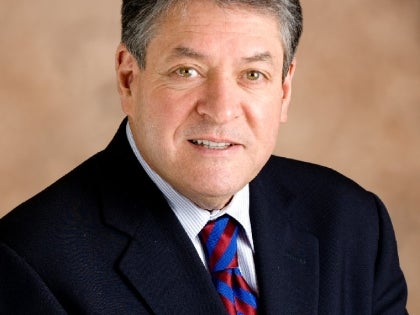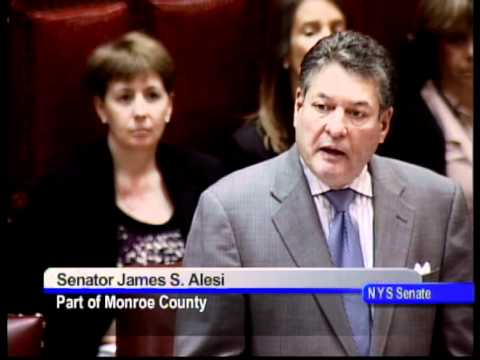
Senator Alesi Legislation To Improve Emergency Care For Cardiac Arrest Victims
Senator Jim Alesi (R/C-Perinton) today announced that the Senate passed a bill he sponsored that would require all facilities with a capacity of 1,000 or more people to have at least one functional cardiac defibrillator. Included in the measure, Senate bill S.1074, is the requirement for at least one employee of the facility to be trained in the proper operation and use of a cardiac defibrillator.
"Having performed CPR twice in recent years," said Senator Alesi, "I have been a strong advocate for efforts aimed at increasing the survival rate of cardiac arrest victims. In both instances, an automated external defibrillator (AED) was not available and would have added substantially to improve the chain of survival, which is: call 9-1-1; administer CPR; utilize an AED; provide appropriate medical attention."
One of the leading causes of death in the United States is sudden cardiac arrest, claiming an estimated 250,000 lives every year. While fewer than one in twenty victims of cardiac arrest survive, the chance of survival is greatly increased by the administration of a defibrillator. The American Heart Association has estimated that as many as 100,000 deaths could be prevented each year through the wide spread use of defibrillators.
"For every minute that passes without defibrillation, a victim's chance of survival decreases by 7-10 percent," said Senator Alesi. "Approximately a quarter-million people die each year due to cardiac arrest, too many of them falling victim to the inability of emergency personnel to reach them in time. According to the American Heart Association, 100,000 lives could be saved through the use of automated external defibrillators (AEDs).
Defibrillators are a highly effective means of saving lives. Sudden cardiac arrest is generally caused by an electrical malfunction of the heart called ventricular fibrillation. Defibrillators stop ventricular fibrillation by applying an electric pulse to the heart, allowing a normal heart rhythm to resume. The administration of a defibrillator is highly successful when used within the first few minutes following sudden cardiac arrest. However, the likelihood of successful resuscitation decreases by approximately ten percent with each minute following the onset of sudden cardiac arrest.
Senate bill S.1074 requires that all facilities, except those used for religious services, with capacity of one thousand, or greater, are equipped with a defibrillator and someone who is trained in its operation. This would increase response time, thus dramatically increasing the number of people who survive sudden cardiac arrest. For example, eight lives have been saved since automated external defibrillators have been required in New York State public schools.
